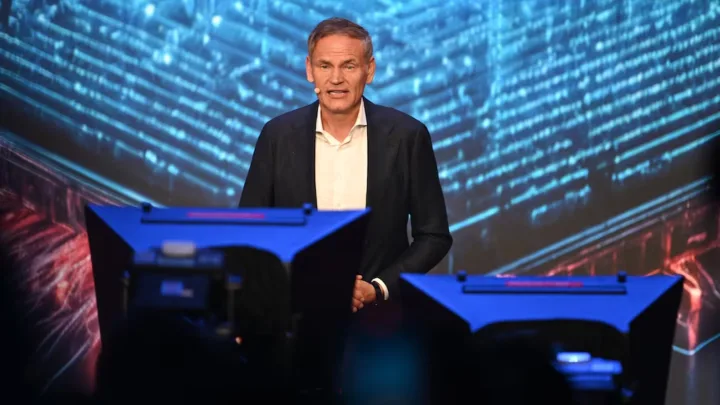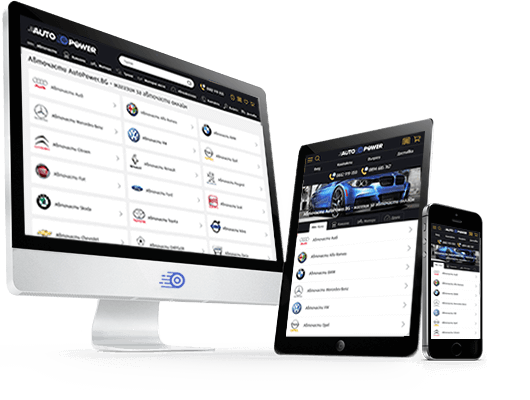Why does the VW boss want to postpone the ICE ban?
VW CEO Oliver Blume, one of the most influential executives in the automotive sector, supports postponing the ban on internal combustion engines, scheduled for 2035. We reveal what his motives for this position could be piese auto online.

When VW boss Oliver Blume speaks, his words carry serious weight – for the sector, for the industry and for society as a whole in Europe. That’s why it’s so important to consider why Blume is questioning the original plan to phase out internal combustion engines by 2035. Blume, perhaps the most important automotive executive in Europe and head of the continent’s largest automaker, has called for more time to achieve the milestones set for 2030 and 2035.
It was the second year that stirred up the spirits of drivers across the EU. According to the plan, the last new internal combustion engine cars, whether petrol, diesel or hybrid, will be able to be registered in the European Union in 2035. In fact, a loophole has been left for the phase-out of internal combustion engines, labeled “openness of technology”. This means that if after 2035 new internal combustion engines can be powered by fuels that are environmentally friendly and non-fossil (for example, synthetic or hydrogen), ICE-equipped cars will still be able to obtain the right to register.
In previous statements, the VW boss has repeatedly demonstrated that he believes in the long-term transition to electric mobility. Now, however, Blume is calling for more flexibility in the implementation of the new regulations. According to him, the transition "needs constant checks that really reflect how quickly electric mobility is spreading," the manager told the Neue Osnabrücker Zeitung. When he said "Where appropriate, politicians should be flexible with regard to the timing of the transition," he was referring to the postponement of the end date for conventional internal combustion engines.
Now is the time to reassess the realities. Blume, who also heads Porsche, described the European Commission’s recent plans for tighter restrictions on fleet regulations as the right step. Carmakers will be given three more years than planned to comply with the stricter CO₂ emissions limits that were due to come into force in 2025 (i.e. by 2028). Otherwise, the German car industry, which has a high proportion of internal combustion engine models, would have been forced to pay the EU several hundred million euros in fines. But the Germans would not be the only ones to suffer – Renault, for example, would also have problems complying with the stricter emissions regulations.
Why does Blume want the retirement of the ICE to be postponed as long as possible?
The automotive industry, especially the German one, is currently facing huge challenges – or rather: problems. The still unresolved trade dispute with the US, initiated by Donald Trump, is just one of the risks that are giving sleepless nights to high-ranking managers from the world of wheels. The other serious case is the serious decline in sales in China. And to top it off, buyers in Germany, the largest car market in Europe, are afraid to bet on electric cars, in the development of which billions have been invested. It is no coincidence that back in January 2025, Blume's colleague Ola Källenius, who in addition to being the boss of Mercedes is also the head of the European Automobile Manufacturers' Association ACEA, called for easing regulations against climate change.
What does stopping internal combustion engines have to do with synthetic fuels?
Given the sluggish sales of electric cars in Germany, the transition to electric powertrains is not making much progress. Under EU regulations, only fully electric cars are considered zero-emission vehicles. And what about internal combustion engines, i.e. gasoline, diesel and hybrid models, which currently account for about 80 percent of all sales in Germany? Ecological fuels could be the salvation. Prominent European politicians, including the likely future German Chancellor Friedrich Merz, have spoken out in favor of postponing the ban on internal combustion engines, pointing to alternative fuels as a solution. But when will “green” synthetic fuels or “green” hydrogen appear? There is no clarity on this issue for now.
The share of “green” hydrogen in Germany is less than one percent, and there is practically no demand for it in the transport sector. And synthetic fuels are currently produced in homeopathic doses. For example, the Japanese energy company Eneos, which wants to supply climate-neutral fuel to Mazda, Subaru, Suzuki and Toyota at Expo 2025 in Osaka in October, recently reported the amount of fuel produced daily at its pilot plant: it was barely “one barrel” per day, which is equivalent to 159 liters!
What will happen in the future?
The European Commission's proposals to ease the extended period for compliance with the CO₂ emissions rule are currently under discussion in the European Parliament and the 27 EU member states. It is said that the negotiating leaders would also advocate for further changes to the limit values. It is also possible that the ICE ban could be postponed beyond 2035.
Conclusion
Should the phase-out of internal combustion engines be postponed or not? A difficult question. This would be better for the industry, but not for the climate. A lot depends on drivers and their choices when buying a new car. In reality, anyone can “retire” the internal combustion engine by betting on electricity – if they want to.
- 2026-01-26 - 50 years since the market premiere of the most Bulgarian Moskvich
- 2026-01-24 - Ferrari's new car: will Hamilton's troubles end?
- 2026-01-23 - In search of identity: 50 years since the debut of the Citroën LN
- 2026-01-22 - BMW 730d: pleasure at a bargain price (retrospection)
- 2026-01-21 - Opel Grandland Electric AWD: two electric motors for confident winter driving
- 2026-01-20 - Alfasud Sprint turned 50
- 2026-01-19 - This is what Verstappen's new car will look like - now with a Ford drivetrain
- 2026-01-18 - Nasser Al Attiyah and Dacia triumph in Dakar
- 2026-01-17 - Al-Attiyah holds the record for stage wins in Dakar, one step away from victory
- 2026-01-16 - The secret mission of the Lada 2110 in Canada - or the story of a foretold failure












